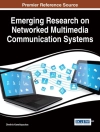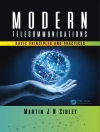This book focuses on how the BOXES Methodology, which is based on the work of Donald Michie, is applied to ill-defined real-time control systems with minimal a priori knowledge of the system. The method is applied to a variety of systems including the familiar pole and cart. This second edition includes a new section that covers some further observations and thoughts, problems, and evolutionary extensions that the reader will find useful in their own implementation of the method.
This second edition includes a new section on how to handle jittering about a system boundary which in turn causes replicated run times to become part of the learning mechanism. It also addresses the aging of data values using a forgetfulness factor that causes wrong values of merit to be calculated. Another question that is addressed is “Should a BOXES cell ever be considered fully trained and, if so, excluded from further dynamic updates”. Finally, it expands on how system boundaries may be shifted using data from many runs using an evolutionary paradigm.
Tabela de Conteúdo
Introduction.- Part I: Learning and Artificial Intelligence (AI).- The Game Metaphor.- Introduction to BOXES.- Dynamic control as a game.- Part II: The Trolley and Pole.- Control of a simulated inverted pendulum using the BOXES method.- The Liverpool experiment.- Solving the auto-start dilemma.- Part III: Other BOXES applications.- Continuous system control.- Other on/off control case studies.- Two non-linear applications.- Part IV: Improving the Algorithm.- Accelerated learning.- Two advising paradigms.- Evolutionary studies research.- Part V: Further Thoughts.- Detecting and handling jitter.- Fully trained cells.- Solving the system aging paradox.- Part VI: Conclusion.
Sobre o autor
David W. Russell, Ph.D, FIMech E, is a Professor Emeritus of Electrical Engineering at Penn State Great Valley, Pennsylvania, USA. His research interests include: applications of artificial intelligence (AI) to real-time, poorly defined control systems, systems engineering, factory information systems, philosophy of machine intelligence, and chaos theory and applications. He has lectured worldwide for many years and has over 30 papers based around the BOXES methodology.












